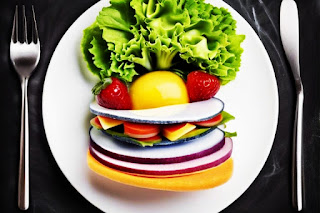Diet plays a significant role in shaping not only our bodies but also our brains. This connection is fascinating.
Many scientific publications show that eating makes us more creative. Eating is the most multisensory of all human behaviors and should be a playground for creative thinking. Imagination and creativity involve discovering the unknown.
There's a connection between different sensory areas associated with consuming foods that contribute to more diverse sensorial experiences.
A healthy meal is for a happy brain. This is how diet affects brain functioning.
1. Nutrient Balance and Brain Health:
- Essential nutrients, such as vitamins, sugars, fats, and amino acids, are crucial for brain function.
- Deficiencies or excesses in these nutrients can influence brain health and behavior.
- For instance, vitamin C is essential for neurotransmitter production and communication between brain cells. A deficiency can lead to hallucinations, as seen in the case of sailors suffering from scurvy during long voyages.
2. The Brain-Body Connection:
- Our diets begin shaping our brains even before birth and continue throughout our lives.
- Poor diets contribute to various health issues, including obesity, cardiovascular disease, diabetes, and certain cancers.
- But beyond physical health, diet also affects the brain, increasing the risk of mental disorders and neurodegenerative diseases.
3. Chemical Resemblance and Brain Impact:
- Food can influence the brain if its components chemically resemble neurotransmitters or affect brain health.
- The delicate balance of nutrients is key:
- Too little or too much can impact brain function either negatively or positively.
In summary, what we eat matters not only for our bodies but also for our thoughts, moods, and behaviors.
While we can't directly treat brain conditions with diet, understanding the role of nutrition in everyday brain processes is essential.
So, next time you reach for a snack, remember that it's not just your stomach you're feeding—it's your brain too!




Thank you for reading!